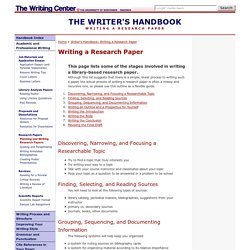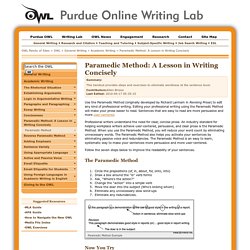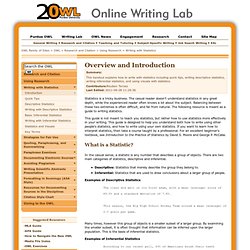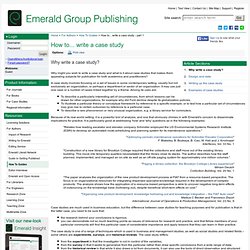

This column will change your life: how to think about writing. 'An awful lot of people seem to think they know the secret to writing well.' Illustration: Chris Madden for the Guardian What's the secret to writing well?

As I've said previously here, an awful lot of people seem to think they know, yet their "rules for writers" are almost always (pardon the technical linguistics jargon) bullshit. For example, "Show, don't tell" is frequently bad advice. In the right context, the passive voice is fine. The key thing to realise, Pinker argues, is that writing is "cognitively unnatural". Pinker's answer builds on the work of two language scholars, Mark Turner and Francis-Noël Thomas, who label their approach "joint attention". Perhaps this seems stupidly obvious. This isn't a "rule for writers"; it's a perspective shift. Oliver.burkeman@theguardian.com. Ten things I wish I'd known before I started my dissertation…
Writing a dissertation can be one of the hardest tasks a university student has to accomplish – but it will come to an end.

Photograph: Randy Faris/Corbis The sun is shining but many students won't see the daylight. Because it's that time of year again – dissertation time. Luckily for me, my D-Day (dissertation hand-in day) has already been and gone. But I remember it well. The 10,000-word spiral-bound paper squatted on my desk in various forms of completion was my Allied forces; the history department in-tray was my Normandy. I remember first encountering the Undergraduate Dissertation Handbook, feeling my heart sink at how long the massive file took to download, and began to think about possible (but in hindsight, wildly over-ambitious) topics. 1) If your dissertation supervisor isn't right, change. 3) If they ask follow-up questions, they're probably just being polite. 4) Do not ask friends how much work they've done. 6) A lot of the work you do will not make it into your dissertation.
Common Writing Assignments: Writing a Research Paper. This page lists some of the stages involved in writing a library-based research paper.

Although this list suggests that there is a simple, linear process to writing such a paper, the actual process of writing a research paper is often a messy and recursive one, so please use this outline as a flexible guide. Discovering, Narrowing, and Focusing a Researchable Topic Try to find a topic that truly interests you Try writing your way to a topic Talk with your course instructor and classmates about your topic Pose your topic as a question to be answered or a problem to be solved Finding, Selecting, and Reading Sources You will need to look at the following types of sources: library catalog, periodical indexes, bibliographies, suggestions from your instructor primary vs. secondary sources journals, books, other documents Grouping, Sequencing, and Documenting Information The following systems will help keep you organized:
Paramedic Method: A Lesson in Writing Concisely. Summary: This handout provides steps and exercises to eliminate wordiness at the sentence level.

Contributors:Allen BrizeeLast Edited: 2010-04-17 05:35:15 Use the Paramedic Method (originally developed by Richard Lanham in Revising Prose) to edit any kind of professional writing. Editing your professional writing using the Paramedic Method will make your prose easier to read. Sentences that are easy to read are more persuasive and more user-centered. Professional writers understand the need for clear, concise prose. Follow the seven steps below to improve the readability of your sentences. The Paramedic Method. Writing for BJET. Writing with Statistics. Summary: This handout explains how to write with statistics including quick tips, writing descriptive statistics, writing inferential statistics, and using visuals with statistics.

Contributors:Reuben TernesLast Edited: 2011-09-28 11:29:36 Statistics is a tricky business. The casual reader doesn't understand statistics in any great depth, while the experienced reader often knows a lot about the subject. Balancing between these two extremes is often difficult, and far from natural. This guide is not meant to teach you statistics, but rather how to use statistics more effectively in your writing. What is a Statistic? In the casual sense, a statistic is any number that describes a group of objects. Descriptive: Statistics that merely describe the group they belong to. Examples of Descriptive Statistics The class did well on its first exam, with a mean (average) score of 89.5% and a standard deviation of 7.8%. 'How Journals Work' How to... write a case study Part: 1.
Why might you wish to write a case study and what is it about case studies that makes them appealing subjects for publication for both academics and practitioners?

A case study involves focusing on a set of issues in some contemporary setting, usually but not exclusively an organization, or perhaps a department or sector of an organization. It may use just one case or a number of cases linked together by a theme. Among its uses are: To describe a particularly interesting set of circumstances, from which lessons can be drawn for other organizations, for example why did Ford decline despite its globalization policies.